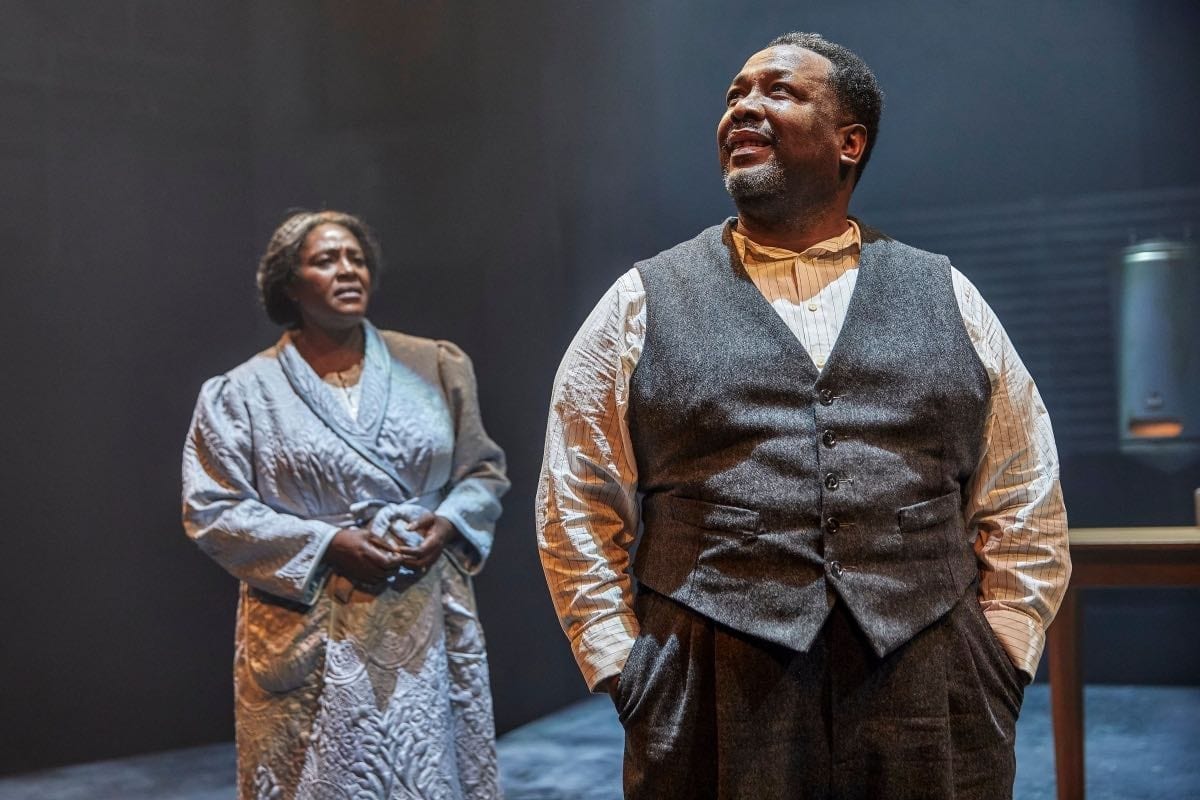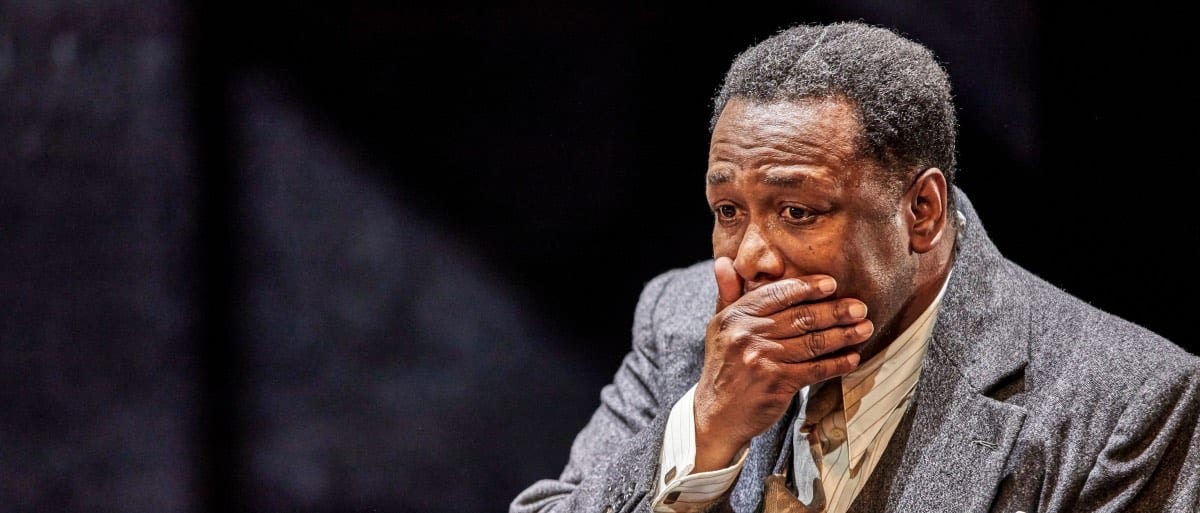This production of Miller’s most famous play has transferred into the West End from the Young Vic. Half of the cast has changed but the two senior roles remain unchanged. It arrives garlanded with positive reviews, but on the strength of the press night performance only some of these seem deserved.
Death of a Salesman hardly needs any introduction. Whether or not it is a satire of the mid-twentieth century ‘American Dream’, a take-down of the world of advertising, or a family drama of defeated and disillusioned aspirations, it has established itself as a dramatic archetype capable of re-invention in any number of differently-styled productions. In this version the Loman family is cast as a black family in Brooklyn, an adaptation which adds telling layers of meaning to the original. As the excellent programme note by Nicole King points out, black families were already very much part of the social fabric of all the boroughs of New York by the 1950s, and it only takes a few tweaks and inflections of the text and stage directions to add all sorts of incidents of subtle racial and racist commentary, whether in the form of table placing in a restaurant or a meaningful inflection to the term ‘boy’.
Less successful is the expressionist rather than naturalistic style of the direction, which slows the action down interminably (the running time with interval is well over 3 hours), and underlines Willie Loman’s disintegration of mind too soon and too obviously. There is a lot to be said for the set by designer Anna Fleischle, in which windows, doors and furniture rise and fall in a way that reminds one of that landmark production of ‘An Inspector Calls’ by Stephen Daldry. But in other respects the approach taken by the directors hampers the flow of the play, drains it of life and does not allow us to see the energy and hope of the characters before despair and defeat set in. It is a very long evening.
Given this very heavy-handed interpretation of the central issues, it is harder to evaluate the central acting performances in their own right. Wendell Pierce certainly looks right for the part, managing to be both a larger-than-life figure full of swagger, and also someone who quickly dwindles away in the face of setbacks and contradiction. But he is too obviously distracted and fragmented in mind from the start to provide an appropriate countervailing force in the long arguments with his son Bif (Ṣọpẹ́ Dìrísù) which provide the core of the play’s dramatic argument. Dìrísù is a fine actor, displaying a full emotional range, but much of his work feels more like a long, unvarying monologue than a dynamic exchange of views brought to full theatrical life.

The same may be said, sadly, of the contribution by that marvellous singer-actress, Sharon D Clarke. She is at her best when the words shade into song (and there are some lovely musical moments added at telling points in the action). However, her two crucial speeches, one in each half, in defence of her husband lack dramatic force and nuance despite their vocal plangency. Her down-trodden weariness comes across well; but there are plenty of points where the energy levels need to be higher and we need to see more hustle and bustle on stage. The sheer ritual solemnity of this production weighs too heavily on this characterisation from the very beginning.
The central character that escapes best is the second son, Happy, played by Natey Jones. Not even this production can deny the fact that this brittle, ‘philandering bum’ is a hyper-active go-getter on the make; so whenever he is on stage the pall of gloom lifts a little. There is also excellent work from the supporting minor characters who are allowed more liberty to be themselves. A particularly fine cameo comes from Trevor Cooper as the well-meaning neighbour, Charley, alternately kindly and clumsily uncomprehending of Willie’s downward spiral. There is also some dapper, sprightly spivery from Joseph Mydell as Willie’s brother, Uncle Ben, who represents the road not taken by Willie himself.
On a technical level there is a lot to admire in this evening, but in other respects it is hard going. I suspect it worked better in the smaller space of the Young Vic, with its greater intimacy and focused intensity. Now that the Piccadilly Theatre is under sudden unforeseen repair perhaps another location can be found to replicate these circumstances. For those new to the play this production is an adequate introduction given the robust strength of the play; but to those who know the play it is less likely to offer memorable rewards.

